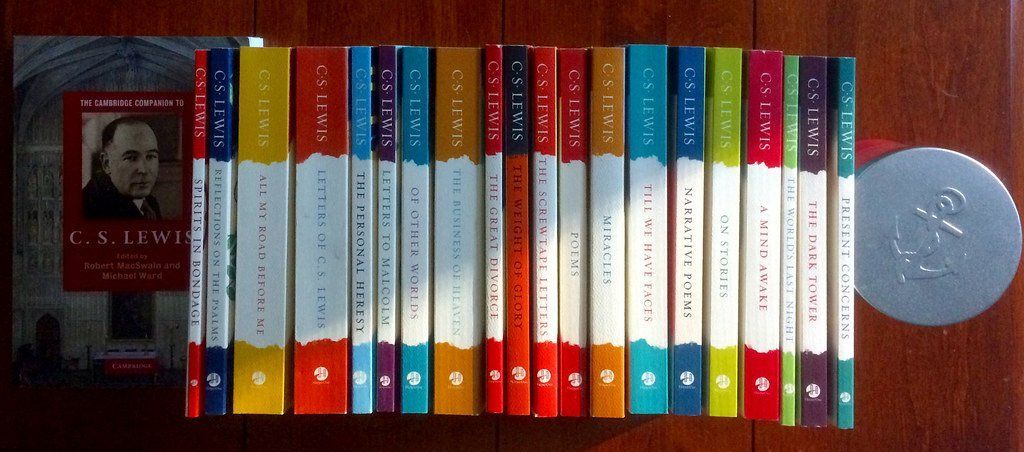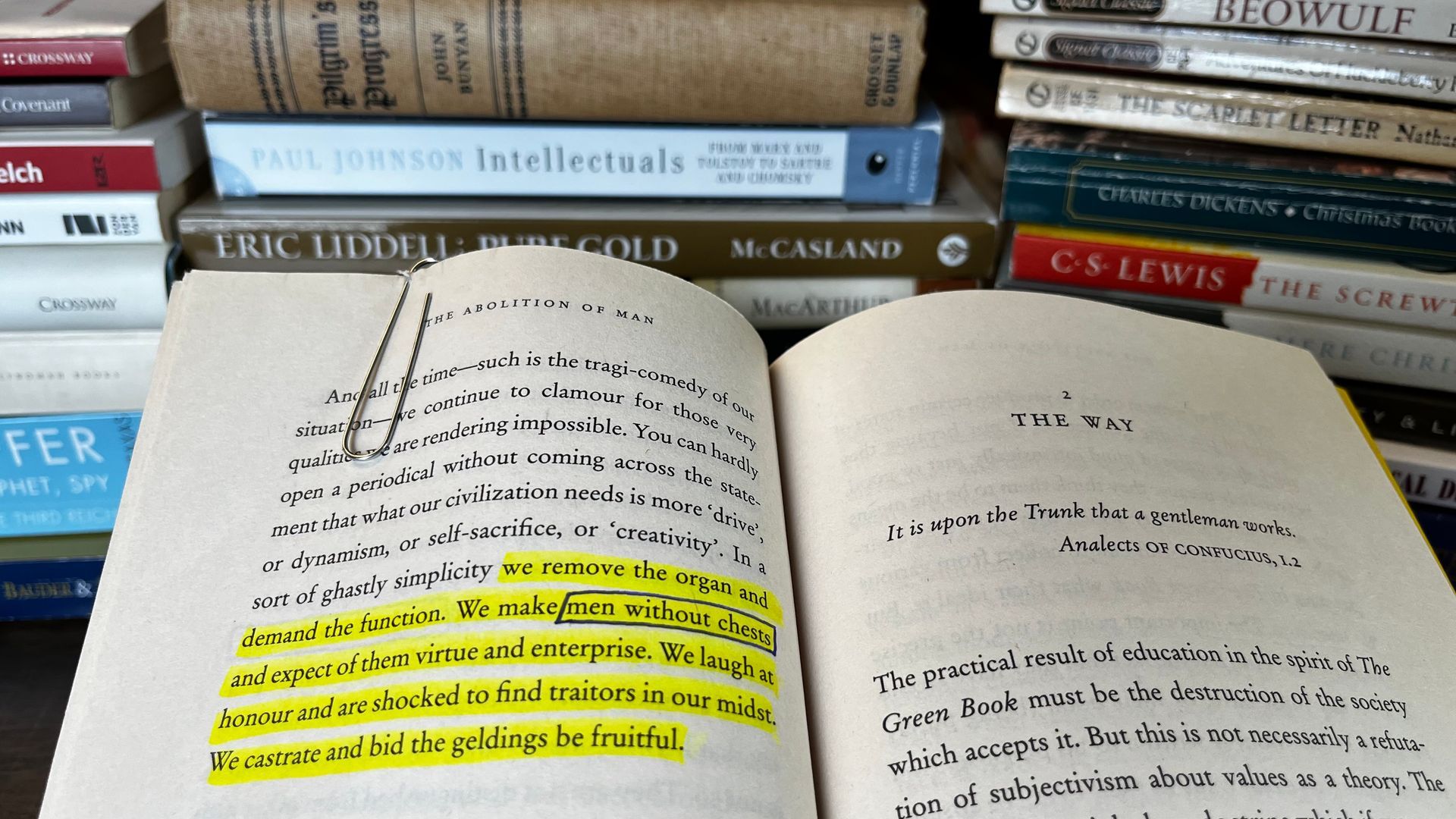My Desires Were Too Weak!

HIGHLIGHTS is a series of "Paragraph Reviews." You can view my explanation in the first post here.
C.S. Lewis, over the last ten years, has become one of my favorite authors. He can take a subject and mull it over in his mind and put it on paper with discipline and focus. He sets the subject in the center, walks around it, and describes it from every angle. If you like guided tours into the world of contemplation, Lewis is your man.
I also find in Lewis a man with whom I have serious theological disagreements. I do not like reading what I disagree with for the most part, but that is not the case with Lewis. Even where I find his views abhorrent, I find them stated thoughtfully and interestingly. On the whole, though, I have greatly benefited from his writings.
I want to highlight one of those benefits in Lewis’ book, The Weight of Glory. One paragraph within those pages revolutionized my view of the role of desire in the Christian life. From early life, I believed godliness to consist of having evil desires and working hard to curb them. I therefore believed that I should live a life of unfulfilled desires in exchange for a good life in eternity. Among other graces, this paragraph was most instrumental in correcting me.
THE PARAGRAPH
“The New Testament has lots to say about self-denial, but not about self-denial as an end in itself. We are told to deny ourselves and to take up our crosses in order that we may follow Christ; and nearly every description of what we shall ultimately find if we do so contains an appeal to desire. . . . Our Lord finds our desires not too strong, but too weak. We are half-hearted creatures, fooling about with drink and sex and ambition when infinite joy is offered us, like an ignorant child who wants to go on making mud pies in a slum because he cannot imagine what is meant by the offer of a holiday at the sea. We are far too easily pleased.”
C.S. Lewis, The Weight of Glory & Other Addresses, New York: Harper One, 2001, 25-26. (Originally published in 1949)
IMPORTANCE
John Piper’s “Christian Hedonism” was heavily influenced by this and several other of Lewis’ writings. I have also heard reference to this paragraph on the “Breakpoint” podcast with John Stonestreet — though I cannot recall which episode. Needless to say, “The Weight of Glory” is certainly not new or unknown in the Evangelical world, and it has enjoyed much influence there.
I, however, did not grow up “there.” I grew up in the Independent Fundamental Baptist world (and am thankful for it). I knew very little of Lewis’ writings outside of the Chronicles of Narnia, and, consequently did not come across “The Weight of Glory” until a few years ago. I wish I had found it sooner!
This paragraph has been one of the main lenses that has corrected my view of desire in the Christian life. For many, many years, I believed the Christian life was one of unfulfilled desires. I thought of godliness in a negative sense. Christianity seemed to me like a system set up to help us make sure we do not desire too much. I was wrong — and my wrong conception bore consequences. I found my Christian joy to be limited. Reading that God “does not find our desires too strong, but too weak” hit me like a bolt of lightning. It was a shock, a thrill, a revelation, and an injection of joy all at once. I now understand the Christian life to be one of “Joy unspeakable and full of glory.” The Christian life is not one of suppressing great desires in order to win brownie points with God. It is a life of choosing great pleasure (Psalm 16:11) — exceedingly, lasting pleasure and rejecting so many cheap, broken imitations!
STRENGTHS
This paragraph helps me understand the essence of Christian sacrifice. Denying ourselves in every case is actually not a sacrifice. It is, in reality, a choice to forgo lesser pleasures for even greater ones.
The analogy of the ignorant child who cannot imagine a holiday at the sea perfectly illustrates people who choose sin over Christ. They think they are choosing the greatest pleasure and rejecting dullness and oppression when, in fact, they are doing the opposite. I have read several “deconstruction of faith” testimonials over the past few years, and I find that they all resemble the child in the mud. They usually begin deconstruction for one purpose — preferring sin over Christ. Before any intellectual reasoning can be considered, there is a matter of desire at root. Christ forbids drink, sex, or ambition, and they think those are greater pleasures than Him. We do not post “construction” testimonials — explanations for why we remain in the Christian faith — but if I were to do so, Lewis’s mudpie vs. holiday at the sea analogy would be in it.
WEAKNESS
This paragraph addresses the degree of desire without going into much detail about the kind of desires or disorder of desires. Now that may only be because of Lewis’ discipline — limiting himself to a narrower discussion of the subject — so it is understandable. Even so, the kind of desires should be considered as well as degree. He does touch on it a little bit throughout the essay, but not in much depth.
RECOMMENDATION
CS Lewis is good reading for both those who like to meditate thoroughly on relevant subjects and those who like to read ideas expressed through engaging language. Lewis’s writing is aesthetically pleasing. If you appreciate beauty, you will appreciate his writing style.
Caveat: Read Lewis with caution. You will benefit greatly, but you will find his thoughts inconsistent with biblical teachings, even major ones.









